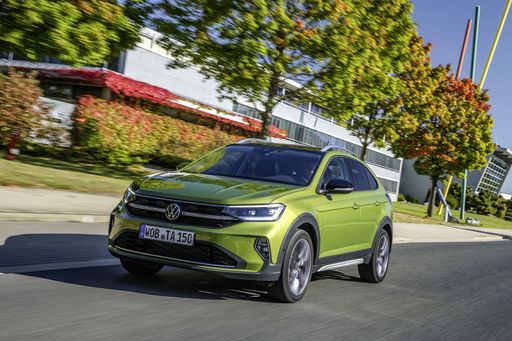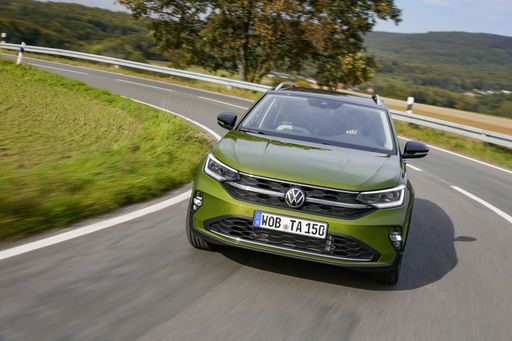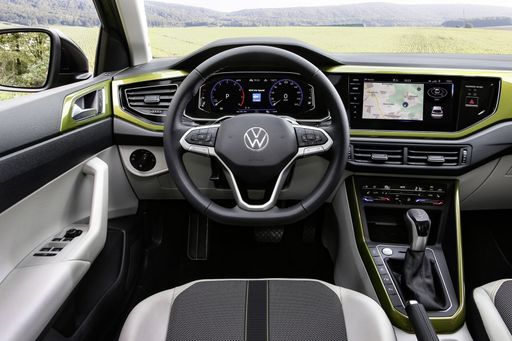Hyundai Bayon vs VW Taigo - Differences and prices compared
Compare performance (90 HP vs 150 HP), boot space and price (20100 £ vs 19900 £ ) at a glance. Find out which car is the better choice for you – Hyundai Bayon or VW Taigo?
Costs and Efficiency:
Price and efficiency are key factors when choosing a car – and this is often where the real differences emerge.
VW Taigo has a minimal advantage in terms of price – it starts at 19900 £ , while the Hyundai Bayon costs 20100 £ . That’s a price difference of around 137 £.
Fuel consumption also shows a difference: VW Taigo manages with 5.30 L and is therefore minimal more efficient than the Hyundai Bayon with 5.80 L. The difference is about 0.50 L per 100 km.
Engine and Performance:
Under the bonnet, it becomes clear which model is tuned for sportiness and which one takes the lead when you hit the accelerator.
When it comes to engine power, the VW Taigo has a clearly perceptible edge – offering 150 HP compared to 90 HP. That’s roughly 60 HP more horsepower.
In acceleration from 0 to 100 km/h, the VW Taigo is clearly quicker – completing the sprint in 8.20 s, while the Hyundai Bayon takes 11.90 s. That’s about 3.70 s faster.
There’s also a difference in torque: VW Taigo pulls clearly perceptible stronger with 250 Nm compared to 172 Nm. That’s about 78 Nm difference.
Space and Everyday Use:
Whether family car or daily driver – which one offers more room, flexibility and comfort?
Both vehicles offer seating for 5 people.
In curb weight, Hyundai Bayon is slight lighter – 1175 kg compared to 1229 kg. The difference is around 54 kg.
In terms of boot space, the VW Taigo offers slight more room – 440 L compared to 411 L. That’s a difference of about 29 L.
When it comes to payload, Hyundai Bayon slight takes the win – 460 kg compared to 457 kg. That’s a difference of about 3 kg.
Who wins the race in the data check?
The VW Taigo sits well ahead of its rival in the objective data comparison.
This result only shows which model scores more points on paper – not which of the two cars feels right for you.
Costs and Consumption
View detailed analysis
Engine and Performance
View detailed analysis
Dimensions and Body
View detailed analysis

VW Taigo
Hyundai Bayon
The Hyundai Bayon slips neatly between city runabout and small SUV, offering surprising practicality and a fresh, confident design that stands out in urban traffic. It's an easy buy for shoppers who want smart packaging, tidy handling and a dash of personality without fuss — a sensible little crossover that makes everyday driving a bit more enjoyable.
details




VW Taigo
The VW Taigo brings coupe-like flair to the compact crossover scene with sharp styling and an interior that punches above its price, feeling smarter than you’d expect. It’s an easygoing daily companion that balances comfort and practicality with a playful wink, perfect for city drivers who want something livelier than a regular hatchback.
details




Costs and Consumption |
|
|---|---|
|
Price
20100 - 25800 £
|
Price
19900 - 31800 £
|
|
Consumption L/100km
5.80 L
|
Consumption L/100km
5.3 - 5.8 L
|
|
Consumption kWh/100km
-
|
Consumption kWh/100km
-
|
|
Electric Range
-
|
Electric Range
-
|
|
Battery Capacity
-
|
Battery Capacity
-
|
|
co2
130 - 132 g/km
|
co2
120 - 132 g/km
|
|
Fuel tank capacity
-
|
Fuel tank capacity
-
|
Dimensions and Body |
|
|---|---|
|
Body Type
SUV
|
Body Type
SUV
|
|
Seats
5
|
Seats
5
|
|
Doors
-
|
Doors
-
|
|
Curb weight
1175 - 1200 kg
|
Curb weight
1229 - 1302 kg
|
|
Trunk capacity
411 L
|
Trunk capacity
440 L
|
|
Length
-
|
Length
-
|
|
Width
1775 mm
|
Width
1757 mm
|
|
Height
-
|
Height
-
|
|
Max trunk capacity
-
|
Max trunk capacity
-
|
|
Payload
450 - 460 kg
|
Payload
448 - 457 kg
|
Engine and Performance |
|
|---|---|
|
Engine Type
Petrol
|
Engine Type
Petrol
|
|
Transmission
Manuel, Automatic
|
Transmission
Manuel, Automatic
|
|
Transmission Detail
Manual Gearbox, Dual-Clutch Automatic
|
Transmission Detail
Manual Gearbox, Dual-Clutch Automatic
|
|
Drive Type
Front-Wheel Drive
|
Drive Type
Front-Wheel Drive
|
|
Power HP
90 HP
|
Power HP
95 - 150 HP
|
|
Acceleration 0-100km/h
11.9 - 13.3 s
|
Acceleration 0-100km/h
8.2 - 11.1 s
|
|
Max Speed
-
|
Max Speed
-
|
|
Torque
172 Nm
|
Torque
175 - 250 Nm
|
|
Number of Cylinders
3
|
Number of Cylinders
3 - 4
|
|
Power kW
66 kW
|
Power kW
70 - 110 kW
|
|
Engine capacity
998 cm3
|
Engine capacity
999 - 1498 cm3
|
General |
|
|---|---|
|
Model Year
2025
|
Model Year
2024 - 2025
|
|
CO2 Efficiency Class
D
|
CO2 Efficiency Class
D
|
|
Brand
Hyundai
|
Brand
VW
|
What drivetrain options does the Hyundai Bayon have?
The Hyundai Bayon is available as Front-Wheel Drive.
